- Home
- Salman Rushdie
The Enchantress of Florence Page 15
The Enchantress of Florence Read online
Page 15
“You have two minutes,” he said to the boy, “to give me a reason why I should not throw you overboard immediately.”
Argalia looked him straight in the eye. “You would be most unwise to do so,” he lied, “for I am a person of strange and varied experience. I have sought my fortune far and wide and on these journeys I have executed a giant—snickersnee! snackersnee!—and slain the Soulless Sorcerer and learned the secrets of his spells, and mastered the language of snakes. I have met the king of the fishes and lived in the house of a woman with seventy sons and only one kettle. I can turn myself at will into a lion, an eagle, a dog, or an ant, so I can serve you with the strength of a lion, spy for you with the eye of an eagle, be as loyal to you as a dog, or conceal myself from you by becoming as small as an ant, so that you will never see the assassin who crawls into your ear and poisons you. In short, I am not to be crossed. I am small, but still worthy to be of your company, because I live my life according to the same profound principle as you yourself follow.”
“And what is that principle, might one inquire?” Andrea Doria asked, with some amusement. He had a protruding beard, a sardonic mouth, and a glittering eye that missed nothing.
“That the end justifies the means,” Argalia replied, recalling something il Machia liked to say about the ethics of using the mandrake root to seduce otherwise unattainable females.
“The end justifies the means,” Doria repeated in surprise. “Now that is damnably well expressed.”
“I made it up myself,” Argalia said, “for I am an orphan like you, rendered penniless in my youth as you were, forced into this line of work just like you; and orphans know that their survival requires them to be prepared to do whatever is necessary. That there are no limits.” What was it il Machia had said after the day of the hanged archbishop? “That only the fittest survive.”
“The survival of the fittest,” mused Andrea Doria. “A second infernally potent idea. Did you come up with that one, too?” Argalia inclined his head in a gesture of modest pride. “Because you were orphaned too,” he continued, “you know that while I may look like a child, I am no helpless babe. A ‘child’ is a safe and pampered thing, cocooned from the truth of the world, allowed to waste years in mere play—a creature who believes that wisdom can be acquired in school. ‘Childhood’ is a luxury I cannot afford, just as you could not. The truth about ‘childhood’ lies hidden in the most untrue stories in the world. Children face monsters and demons and only survive if they are fearless. Children starve to death unless they free a magic fish who grants them their heart’s desires. Children are eaten alive by trolls unless they manage to delay the creatures until the sun rises, whereupon the vile things turn to stone. A child must learn how to cast beans to tell the future, how to cast beans to bind men and women to his will, and how to grow the beanstalk upon which such magic beans are found. An orphan is a child writ large. Our lives are lives of fable and extremes.”
“Give this loudmouth philosopher something to eat,” Admiral Doria told his boatswain, an intimidating ox of a sailor named Ceva. “He may be useful to us before our journey’s done, and his goblin lies will entertain me until that time comes.”
The boatswain kept a firm hold of Argalia’s ear as he led him out of the captain’s cabin. “Don’t think you got away with this because of your fancy blather,” he said. “You are alive for one reason only.” “Ouch,” said Argalia, “and what is that?”
Ceva the boatswain twisted his ear harder. There was a scorpion tattooed on the right side of his face and he had the dead eyes of a man who had never smiled. “The reason is that you somehow found the guts, or the gall, to look him in the eye. If a fellow don’t look him in the eye he tears their liver out and feeds it to the gulls.”
“Before I’m finished,” Argalia replied, “I will be the commander making judgments of that sort, and you? You’d better look me in the eye, or else.”
Ceva cuffed him on the side of the head, without a trace of affection. “You’ll have to wait your turn, runt,” he said, “because right now your eye is only high enough to stare at my fucking cock.”
Whatever Ceva the Scorpion said, Argalia’s tall stories must have had something to do with his survival too, because it turned out that the monstrous Admiral Andrea Doria had a weakness for such tales, just like any dumb giant. In the evenings when the sea was black and the stars burned holes in the sky the Admiral would smoke an opium pipe below decks and call for the story-filled boy. “As your Genoan ships are all triremes,” Argalia would say, “you should carry cheese on one deck, breadcrumbs on another, and rotting flesh on the third. When you come to the Island of Rats, give them the cheese; the breadcrumbs will please the denizens of the Isle of Ants; and as for the rotting flesh, the birds of Vulture Island will appreciate it. After that you will have mighty allies. The rats will gnaw through all obstacles for you, even through mountains, and the ants will perform all those duties that are too delicate for human hands. The vultures, if you ask them nicely, will even fly you to the top of the mountain where the spring of eternal life gushes out.” Andrea Doria grunted. “But where are these infernal islands?” he wanted to know. “Admiral,” the boy replied, “you’re the navigator, not I. They must be on your charts somewhere.” In spite of such cheeky remarks he lived to tell another tale another day—once upon a time there were three oranges and inside each one a beautiful girl who would die if you didn’t give her water the moment she came out of the orange—and the Admiral, wreathed in coils of smoke, would mumble confidences to him in return.
The sea was full of murder. The caravels of the Barbary pirates marauded through these waters, plundering and kidnapping, and since the fall of Constantinople the galleys of the Osmanli Turk or Ottoman navy were active here as well. Against all these maritime infidels Admiral Andrea Doria had set his pockmarked face. “I will drive them from the Mare Nostrum and make Genoa mistress of the waves,” he boasted, and Argalia did not dare to offer any contrary or irreverent word. Andrea Doria leaned toward the silent boy, his eyes milky with afim. “What you know and I know the enemy knows as well,” he whispered, half lost in his opium dream. “The enemy, too, follows the orphan’s law.” “What orphan?” Argalia asked him. “Mahomet,” Andrea Doria replied. “Mahomet, their orphan god.”
Argalia had not known that he shared his orphan status with the Prophet of Islam. “The end justifies the means,” Andrea Doria went on in a thickening, slow voice. “See? They go by the same rule as we do. The One Commandment. Whatever it takes is the choice we makes. So their religion is the same as ours.” Argalia took a deep breath and asked dangerous questions. “If that is correct,” he said, “then are they truly our enemies? Is our proper adversary not our antithesis? Can the face we see in a mirror be our foe?” Admiral Andrea Doria was close to unconsciousness. “Quite right,” he mumbled as he slumped back in his chair, beginning to snore. “And, anyway, there is one enemy I hate more than any Mohammedan pirate scum.”
“Who is that?” Argalia asked.
“Venice,” he said. “I’m going to fuck up those pretty-boy Venetian bastards as well.”
As the eight Genoan triremes sailed in battle formation, hunting down their prey, it became plain to Argalia that religion had nothing to do with anything. The corsairs from the Barbary states weren’t bothered about conquering anybody or spreading the faith. They were interested in ransom, blackmail, and extortion. As for the Ottomans, they knew that the survival of their new capital city of Stamboul depended on getting food into the port from elsewhere, and so the shipping lanes had to be kept open. They had also begun to have acquisitive notions and had sent ships to attack ports along and beyond the shores of the Aegean Sea; and they didn’t like Venetians, either. Power and wealth and possessions and wealth and power. As for Argalia, at night his dreams, too, were full of exotic jewels. Alone in his fo’c’sle bunk he swore a private vow. “I will never return to Florence as a pauper, but only as a treasure-laden prince.” His quest was re
ally very simple. The nature of the world had become clear.
When things seemed clearest, however, they were invariably at their most treacherous. After a victorious engagement with the pirate ships of the Barbarossa brothers of Mytilene, the Admiral was dripping satisfactorily with Saracen blood, and having presided over the execution of the captured pirates—they were coated with pitch and burned alive in the main square of their own hometown—he conceived the daring notion of entering the Aegean and taking the battle to the Osmanlis in their own “home” waters. But as the Band of Gold entered that legendary sea and faced the Ottoman galleys head-on an occult fog arose from nowhere and blotted the whole world from view; as if some Olympian mischief was at work, as if the ancient gods of the region, bored with the long tedium of an age in which they no longer held sway over men’s affections and loyalties, had decided to toy with them, to ruin their plans, just for old times’ sake. The eight Genoan triremes attempted to hold their battle line, but the fog was disorienting, it was filled with the howls of ghouls and the shrieks of witches and the stink of disease and the wailing of the drowned, and even those hardened mercenaries soon enough began to panic. The system of foghorns which Admiral Doria had instituted against just such a day quickly broke down. Each of his ships had been given its own individual signal of short and long blasts, but as the mercenaries panicked in that miasma of death and superstition their communications lost all clarity, and so did the foghorns of the Ottomans, until nobody knew where they were, or who was friend and who was deadly foe.
Cannon fire broke out abruptly from the sides of the triremes and from the mighty swiveling cannons mounted on the decks of the Ottoman galleys, and the red flames and bright flashes of the big guns in the fog looked like small pieces of Hell in the midst of this formless Limbo. Rifle fire blossomed all around, a flickering garden of deadly red flowers. Nobody knew who was firing at whom, or how to act for the best, and a great catastrophe was imminent. Then all of a sudden, as if both sides understood their peril at exactly the same moment, a silence fell. No gun fired, no voice called out, no foghorn sounded. Stealthy movements began everywhere in the empty white. Argalia, standing alone on the deck of the flagship, felt his destiny grip him by the shoulder, and was surprised to note that destiny’s hand was trembling with fear. He turned to look. No, it was not Fate standing behind him, but Ceva the boatswain, no longer grim and terrifying, but an unnerved, beaten dog. “The Admiral needs you,” he whispered to the boy, and led him below decks to where Andrea Doria waited, holding in his hand the great horn of the flagship of the fleet. “Today is your day, little man, my storyteller,” the Admiral said softly. “Today you will achieve greatness by deeds instead of words.”
The plan was for Argalia to be lowered into the water and set adrift in a small dinghy, which he was to row away from the flagship as fast as possible. “On every hundredth stroke of the oars,” the Admiral said, “blow hard on this horn. The enemy will mistake subtlety for arrogance, he will accept the challenge of Andrea Doria’s cornetto, and will turn his ships toward you, thinking to capture a great prize—which is to say, my own person!—and in the meanwhile I will have the advantage of him and will strike him fatally from a quarter from which he expects no wound.” It seemed like a bad plan to Argalia. “And I?” he asked, staring at the horn in his hand. “When the ships of the Infidel are bearing down upon my little vessel, what am I supposed to do?” Ceva the Scorpion picked him up bodily and dropped him into the dinghy. “Row,” he hissed. “Little hero. Row for your fucking life.”
“When the fog clears and the enemy is vanquished,” said the Admiral, a little vaguely, “we’ll pick you up again.” Ceva gave the dinghy a hard push. “Yeah,” he hissed. “That’s what we’ll do.”
Then there was only the whiteness of the fog and the sound of the sea. Land and sky began to feel like ancient fables. This blind floating was the universe entire. For a time he did as he had been ordered to do, a hundred strokes of the oars, then a blast on the horn, twice, three times he did it, and never heard any answering noise. The world was mute and lethal. Death would come upon him in a noiseless watery rush. The Ottoman ships would bear down on him and crush him like a bug. He stopped blowing the horn. It became plain to him that the Admiral was uninterested in his fate and had sacrificed his “little storyteller” as casually as a man spitting a mouthful of phlegm over the side of a ship. He was no more than that gob of sputum, bobbing for an instant on the waves before he drowned. He tried to tell himself stories to keep his spirits up but could only think of frightening ones, a leviathan rising from the deep to crunch a boat in its gigantic jaws, the uncoiling of deep-sea worms, the breathing of underwater dragonfire. Then after a further time all the stories faded away as well and he was left without defenses or recourse, a lonely human soul drifting vaguely into the white. This was what was left of a human individual when you took away his home, his family, his friends, his city, his country, his world: a being without context, whose past had faded, whose future was bleak, an entity stripped of name, of meaning, of the whole of life except a temporarily beating heart. “I am absurd,” he told himself. “A cockroach in a steaming turd has more significance than I.” Many years later, when he met Qara Köz the hidden Mughal princess and his life finally acquired the meaning which destiny had in store for it, he saw the look of abandoned despair in her eyes and understood that she, too, had had to face the profound absurdity of the human condition. For that, if for no other reason, he would have loved her. But he had other reasons too.
The fog thickened around him, around his eyes, his nose, his throat. He felt himself beginning to choke. Maybe he would die now, he thought. His will had been broken. Whatsoever Fate brought, he would accept. He lay down in his little boat and remembered Florence, saw his parents as they had been before the plague deformed them, remembered boyhood escapades in the woods with his friends Ago and il Machia, was filled with love by these memories, and, a moment later, fainted.
When he awoke, the fog had vanished, and so had the eight triremes of Admiral Andrea Doria. The great condottiere of Genoa had simply turned tail and fled, and the foghorn in the dinghy had been a simple diversionary measure. Argalia’s little craft bobbed helplessly right in front of the assembled Ottoman navy like a mouse cornered by half a dozen hungry cats. He stood up in the boat and waved to his conquerors and blew the Admiral’s foghorn as loudly as he could.
“I surrender,” he shouted. “Come and get me, you godless Turkish swine.”
{ 13 }
In the children’s prison camp at Usküb
In the children’s prison camp at Usküb (said the memory palace) there were many tongues but only one God. Each year the press gangs roamed the expanding empire to levy the devshirmé tax, the child tribute, and took the strongest, cleverest, best-looking boys into slavery, to be changed into instruments of the Sultan’s will. The principle of the Sultanate was governance by metamorphosis. We will take your finest offspring from you and we will transform them utterly. We will make them forget you and turn them into the force that keeps you under our heel. By your own lost children will you be ruled. In Usküb where the process of change began there were many tongues but only one uniform, the baggy-trousered garb of the Ottoman recruit. The hero’s rags were taken from him and he was washed and fed and given clean water to drink. Then Christianity was taken from him as well and he was obliged to put on Islam like a new pair of pajamas. There were Greeks and Albanians in Usküb, Bosnians and Croats and Serbs, and there were mamlúk boys, white slaves, from up and down the Caucasus, Georgians and Mingrelians, Circassians and Abkhazas, and there were Armenians and Syrians as well. The hero was the only Italian. Florence did not pay the child tribute, though it was the opinion of the Osmanlis that that would change with time. His captors pretended to have difficulty with his name, al-ghazi, the conqueror, they called him for a joke, or al-khali, the empty one, the vessel. But his name wasn’t important. Argalia, Arcalia, Arqalia, Al-Khaliya. Nonsense wor
ds. They didn’t matter. It was his soul that had to be placed under new management just like everyone else’s. On the parade ground in their new outfits the sullen children stood in ranks before a man in a frock, whose white hat was as tall as his white beard was long, the one rising three feet above his brow and the other falling an equal distance from his chin, giving him the appearance of possessing a head of immense length. This was a holy man, a dervish of the Bektashi order, and he had come to convert them to Islam. In their many accents the angry, frightened boys parroted the necessary Arabic sentence about the one God and his Prophet. Their metamorphosis had begun.
While he was traveling in the service of the republic il Machia never stopped thinking about the palace of memories. In July he galloped down the Ravenna road to Forlì to persuade Countess Caterina Sforza Riario to let her son Ottaviano fight alongside the Florentine forces for considerably less money than she wanted, because if she refused she would lose Florence’s protection and be at the mercy of the terrible Duke Cesare Borgia of Romagna, the son of the Borgia Pope Alexander VI. The “Madonna of Forlì” was a woman so beautiful that even il Machia’s friend Biagio Buonaccorsi broke off from sodomizing Andrea di Romolo to ask Niccolò to bring home a drawing of her. But Niccolò was thinking about the nameless Frenchwoman standing like a marble figure in her boudoir at Alessandra Fiorentina’s House of Mars. “Hey, Machia,” Ago Vespucci wrote, “we need you back here fast because without you there’s nobody to organize our nights of boozing and cards, and besides that, this Chancery of yours is full of the bitchiest assholes in Italy, all trying to get us fired—so all this riding about of yours is bad for business too.” But Niccolò wasn’t thinking about intrigue or wild living, or, rather, there was just one woman’s body he was hoping to debauch, if he could just find the key that unlocked her secret self, the suppressed personality hidden beneath the memory palace.

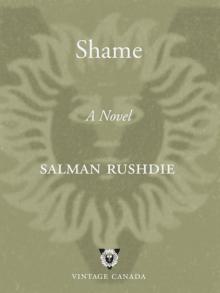 Shame
Shame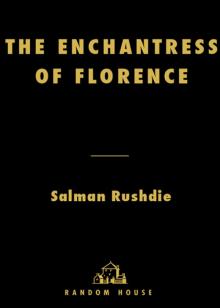 The Enchantress of Florence
The Enchantress of Florence Imaginary Homelands: Essays and Criticism 1981-1991
Imaginary Homelands: Essays and Criticism 1981-1991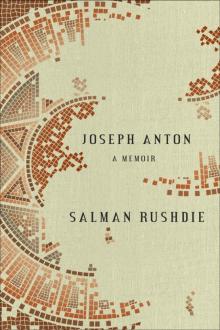 Joseph Anton: A Memoir
Joseph Anton: A Memoir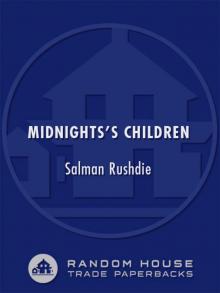 Midnight's Children
Midnight's Children East, West: Stories
East, West: Stories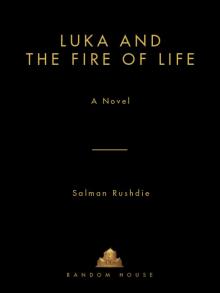 Luka and the Fire of Life
Luka and the Fire of Life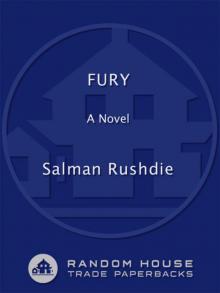 Fury Fury Fury
Fury Fury Fury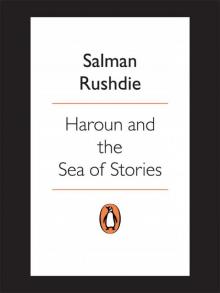 Haroun and the Sea of Stories
Haroun and the Sea of Stories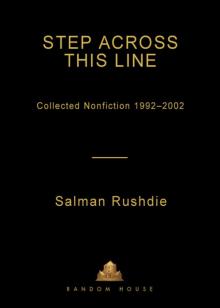 Step Across This Line: Collected Nonfiction 1992-2002
Step Across This Line: Collected Nonfiction 1992-2002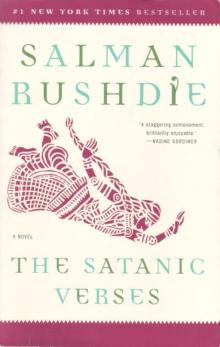 The Satanic Verses
The Satanic Verses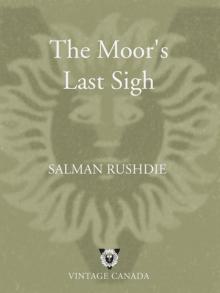 The Moor's Last Sigh
The Moor's Last Sigh The Prophet's Hair
The Prophet's Hair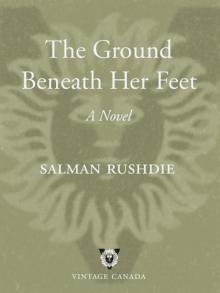 The Ground Beneath Her Feet
The Ground Beneath Her Feet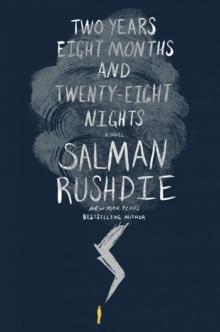 Two Years Eight Months and Twenty-Eight Nights
Two Years Eight Months and Twenty-Eight Nights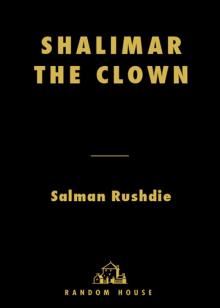 Shalimar the Clown
Shalimar the Clown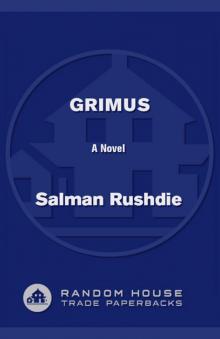 Grimus
Grimus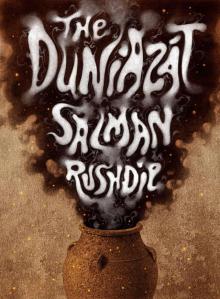 The Duniazát
The Duniazát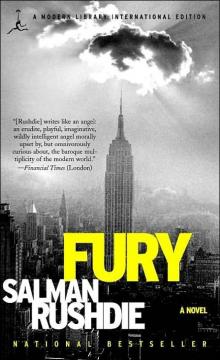 Fury
Fury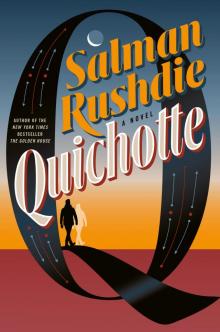 Quichotte
Quichotte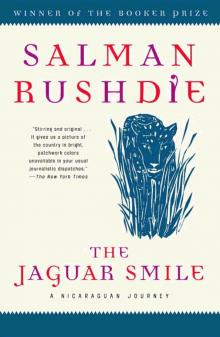 The Jaguar Smile
The Jaguar Smile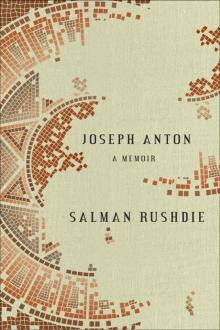 Joseph Anton
Joseph Anton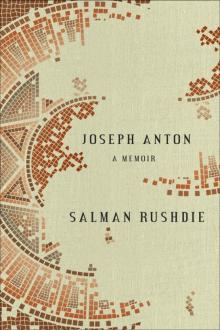 Joseph Anton: A Memoir: A Memoir
Joseph Anton: A Memoir: A Memoir Imaginary Homelands
Imaginary Homelands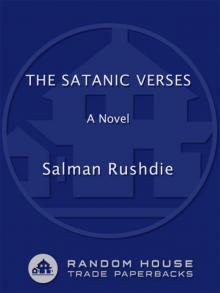 The Satanic Verses: A Novel
The Satanic Verses: A Novel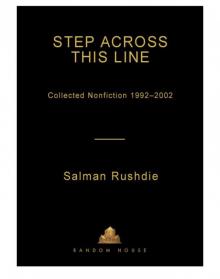 Step Across This Line
Step Across This Line East, West
East, West